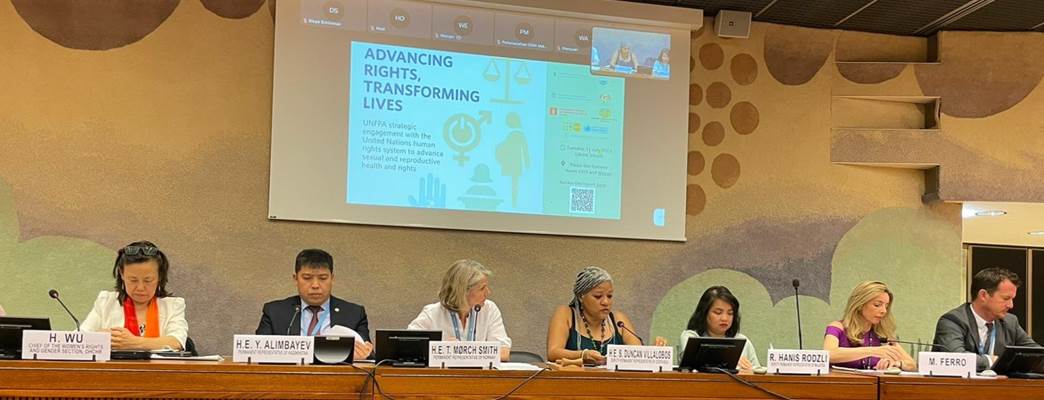The report “Advancing rights, transforming lives” looks at national level results from the multilateral engagement on women’s rights and gender equality, and sexual and reproductive health and rights in particular.
-The June sessions of the Human Rights Council are often the most challenging ones, where a lot of time is spent debating what progress in women’s rights and gender equality actually looks like, said Norwegian Ambassador Tine Mørch Smith at the launch. -The link to results on the ground is a key priority for me and my government. What we do here in Geneva should matter to people in local communities and make gender equality and access to SRHR a reality there.
The report, which includes case studies from Costa Rica, the Ivory Coast, Jordan, Kazakhstan and the Maldives, reviews how the UN human rights system has taken up women's rights, gender equality and sexual and reproductive health and rights and the degree to which these recommendations have been translated into action, with UNFPA's support.
In addition to country presentations by the Ambassadors of Costa Rica and Kazakhstan, the event included a presentation of the wider report, highlighting the importance of states’ engagement in the human rights system at both international and national levels to bridge the gap between universal values and local realities.
- The report shows that the multilateral efforts work, emphasized Marc Limon from Universal Rights Group.
Panellists concluded that the effectiveness of the United Nations human rights system depends on the full involvement and engagement of States. With close cooperation between states and the UN human rights system, the human rights system can have a significant impact on socially or culturally sensitive topics in a given national context. But implementation of the recommendations should be a democratic rather than bureaucratic process, involving parliamentarians, judges, national human rights institutions and civil society.
The full report is available here
Recording available here
